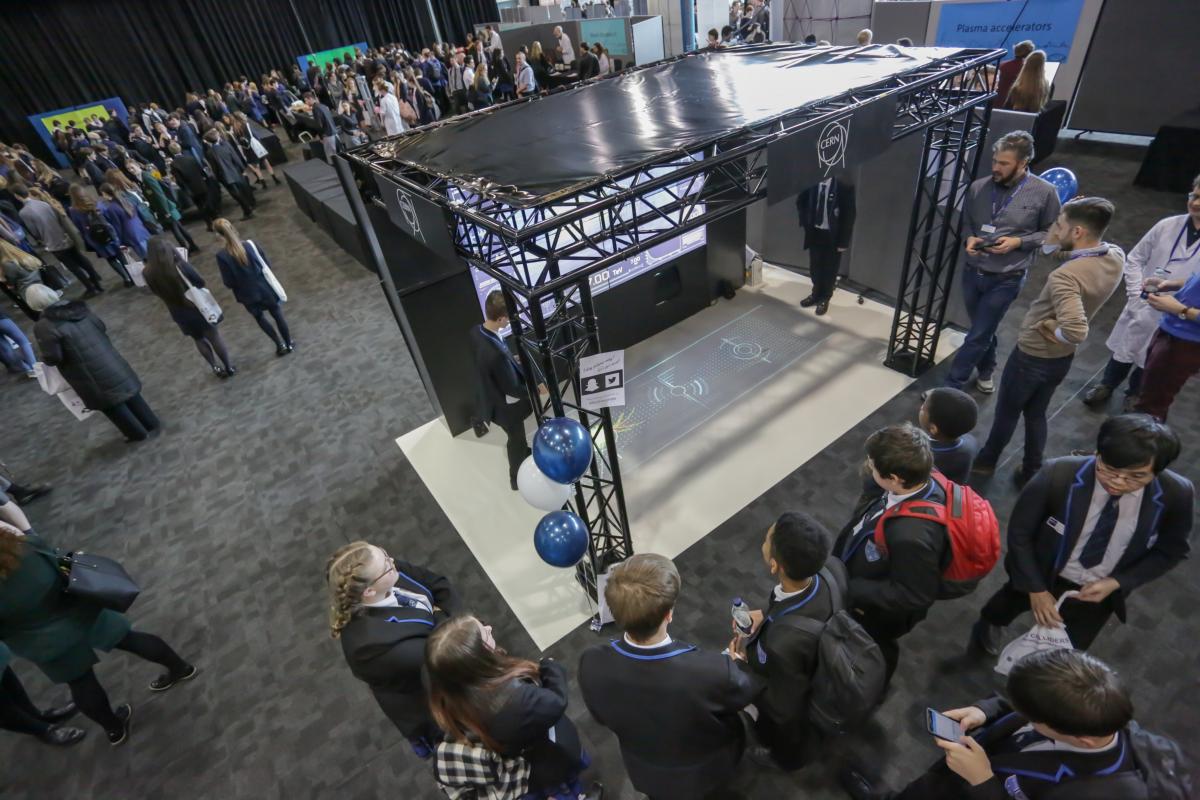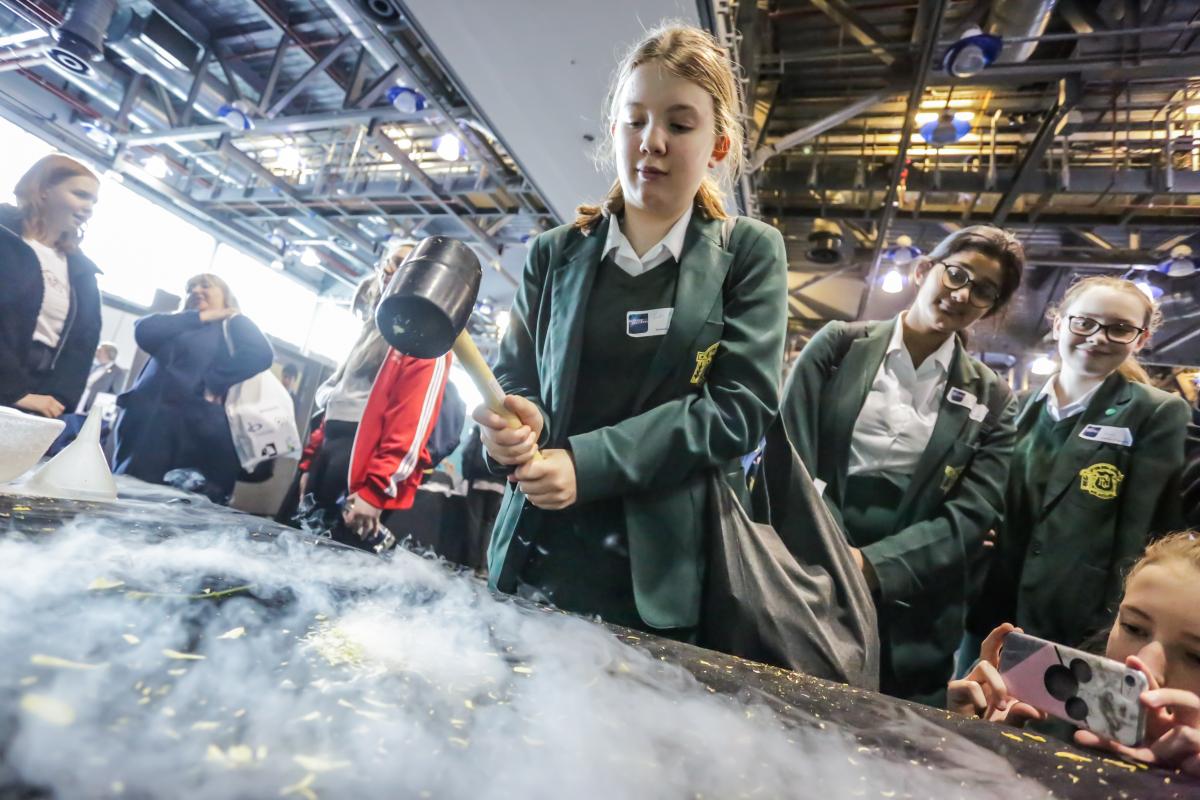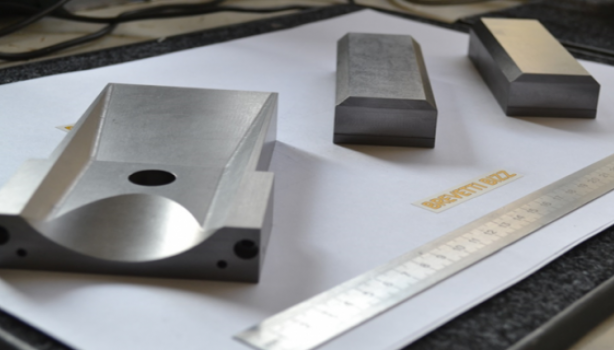Fundamental science benefits society in many ways, from generating knowledge about how our universe works, to enabling unexpected and often transformative applications. Particle accelerators have been at the centre of many of the most advanced research infrastructures for decades. They have enabled many discoveries, such as the Higgs boson, and also led to the development of technologies that have changed our lives.
Future particle accelerators are expected to have a similarly bold impact on science and society. To showcase and the discuss the technologies that are currently being developed within the global Future Circular Collider (FCC) study, almost 1,000 researchers and industrialists from across Europe, university and high school students participated in “Particle Colliders – Accelerating Innovation”, an international science Symposium that took place in Liverpool on Friday 22nd March 2019.
The event, which was co-hosted by the University of Liverpool and CERN together with partners from the Future Circular Collider and EuroCirCol projects and the support of the EASITRain and AVA MSCA training networks, investigated the opportunities that a next generation of colliders can offer to industry, scientists and society.
In January 2019, CERN published the conceptual design report for the Future Circular Collider (FCC), a potential successor to the Large Hadron Collider (LHC), which aims to expand our current understanding of nature beyond the established physical model of the universe.
Professor Carsten P. Welsch, Head of the University of Liverpool Physics Department and organizer of the event, explains why fundamental research is key to advancing a knowledge-based society: “Fundamental research enables discoveries that push the boundaries of our understanding of the universe. This requires highly advanced experiments, made possible through a true global effort. Developing the design concept for future research infrastructures is not just about the science they would enable; it also requires us to drive technological progress that can benefit our everyday lives.”
The keynote talks from the Symposium were live-streamed to institutions across Europe and are now available to watch via the event website. Dozens of companies from across the UK and other EU countries showcased their latest products in an industry exhibition which followed the morning talks. The exhibition also served university students as a careers fair. They had their normal modules replaced by this unique event and found an ideal opportunity to discuss employment opportunities in different sectors. A wide range of high tech companies joined the event and provided insight into where their physics degree might take the students to next.

Image 1. Part of the outreach exhibition with the LHC interactive tunnel in the front. (Image: University of Liverpool)
More than a dozen different outreach activities, each one offered several times in parallel, were available to high school students. This included the Plasmatron, an interactive game explaining the physics behind plasma accelerators, salad bowl accelerators showing how high voltages can be generated, the augmented reality accelerator acceleratAR that turns paper cubes into components of a particle accelerator, and cryo-experiments that turned flowers into glass-like objects…which were then smashed into pieces by the children, as can be seen on the photo below.

Image 2. Part of the outreach exhibition with the LHC interactive tunnel in the front. (Image: University of Liverpool)
The entire hall was full of physics, in fact, there was even physics in the way that activities were set up as they were arranged along the spectral colours of the rainbow. A leaflet was made available to all participants and explained the link between each individual activity and ongoing accelerator science R&D.
A highlight for the hundreds of visually impaired and sighted students attending was a demonstration of the world’s first interactive ‘Tactile Collider’, which uses touch together with real sounds from the LHC to create an immersive experience. This unique experience was developed by experts from the Cockcroft Institute and has been touring the UK over the past 2 years. The event was made inclusive for VI children: in addition to tactile collider, all talks were supported by a narrator who explained the slides on display via Bluetooth headset to them. RNIB Connect Radio's Simon Pauley spoke with Dr Chris Edmonds and Professor Carsten Welsch the day before the event and you can listen to the interview here.
Finally, delegates also had the chance to play proton football and interact with visualisations of themselves in two different universes within CERN’s interactive Large Hadron Collider Tunnel, which made its UK premiere at the Symposium.
The “Particle Colliders: Accelerating Innovation” Symposium was co-hosted by the University of Liverpool and CERN, together with partners from the Future Circular Collider and EuroCirCol projects, on Friday 22 March 2019 at the ACC Liverpool. All talks and further information are available via the event website: indico.cern.ch/event/747618


